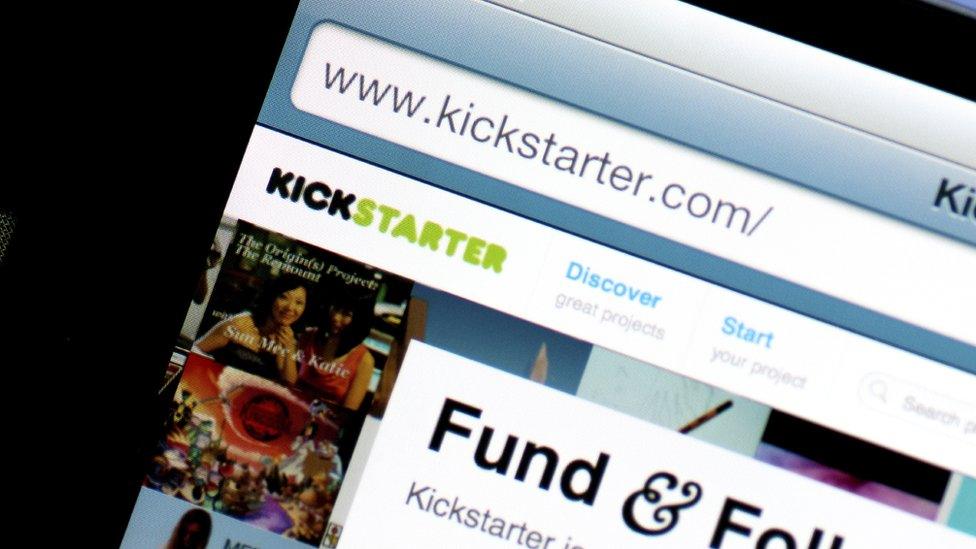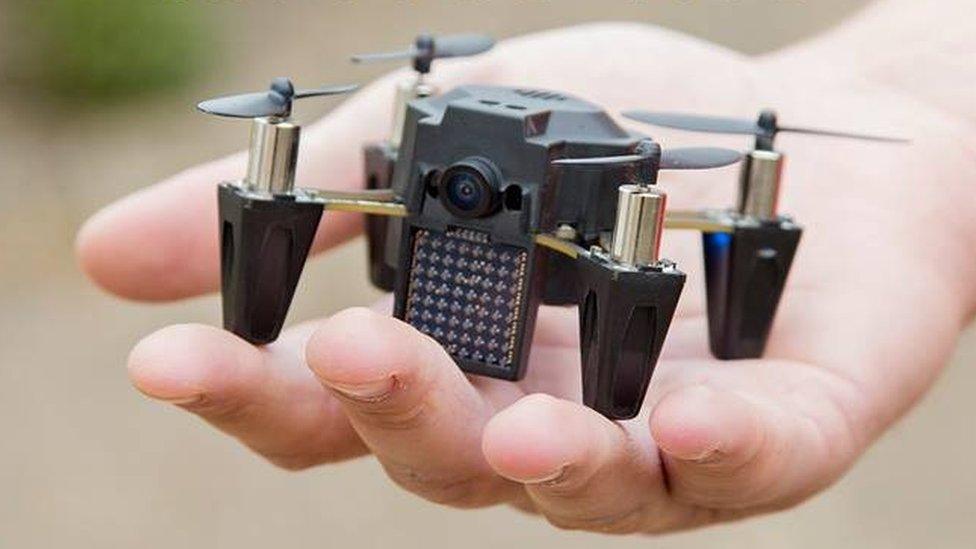When crowdfunding projects go wrong
- Published
- comments

What happens when a crowdfunded project goes wrong? And do those who back ideas on platforms such as Kickstarter and Indiegogo have any rights when they do not deliver on their promises?
That is what the more than 12,000 people who backed the Zano mini-drone project are asking as their hopes recede of ever getting a working product.
Since I wrote about Zano last week things have got worse. The Torquing Group, the company behind it, finally released a statement on Friday but gave no further information on what was happening. After expressing sadness at the resignation of Ivan Reedman, the engineer at the heart of the project, it said: "We are now considering the company's position on how best to move forward."
I then emailed Philip Busby, Torquing's chief executive, with the same questions I had asked before about the nature of the promotional video which had sold many on the appeal of the Zano, and the decision to deliver to pre-order customers before backers. I also asked why Torquing was continuing to accept payments via its website for accessories (I'd tested this by buying a battery pack) when it seemed unlikely that the project would continue.

More than 12,000 people gave a total of £2,335,119 to fund the Zano drone via Kickstarter
I received no answers to my questions, but last night I noticed that my order had been cancelled and my money refunded by the credit card firm.
With no answers from Torquing, I turned to Kickstarter. I wanted to know what kind of due diligence is involved before a project is allowed to go ahead. Does the crowdfunding platform check the claims made in promotional videos, for instance, and is a working prototype needed before a Kickstarter for a physical product is allowed onto the platform?
David Gallagher from Kickstarter said yes: "Creators who want to make and distribute hardware must include a demo of a working prototype on their project page." But no, they do not have the capacity to review any claims made by creators: "Creators are responsible for their projects, and backers decide whether those projects should be funded. We encourage backers to do some research on the creator and their project before backing, and to evaluate their ability to complete the project."
He went on to explain that there will always be an element of risk in a crowdfunding project - that in a way is the whole point - but that Kickstarter does have rules which are stricter than those of rival platforms. The identity of project creators is verified at the start, and promotional videos cannot use CGI, meaning they have to show real footage. What is more, backers' money is not taken until the funding period is over.
But any checks only take place during the funding period - and on occasion Kickstarter can kick projects off the platform at this stage. That happened recently with the Laser Razor, which was removed because its creators did not appear to have a working prototype.
Once a project is funded, Kickstarter says it is up to creators and backers to work together to make sure that the product is delivered as promised. That involves constant communication, and for many months Ivan Reedman at Torquing fulfilled that role in a very active way - until his sudden departure last week. Now communication with the backer has come to a complete halt.
Kickstarter says that the final recourse backers have when a project goes wrong is to take legal action for the breach of their contract with the creators. It also points out that regulators may take an interest if consumers can show they have been misled. But the key message is that it is up to backers to do proper research.
That is not going down well with members of a Facebook group of Zano backers."My view is that Kickstarter allowed a misleading promotional video or advertisement to appear on their platform without any due diligence," writes one man. "By allowing this and by actively promoting it as a staff pick, they encouraged people to 'invest'." Another backer, David Black said this would be his last Kickstarter: "If KS don't care about enforcing their own terms and conditions how could I possibly use them again. Once bitten..."
There are currently more than 6,000 projects seeking funding on Kickstarter and the platform continues to grow. It is trying to enforce tighter regulation, but with fewer than 20 staff examining each new product, it seems clear that the site just does not have the capacity to check out the claims made by creators. So, the advice for anyone looking at putting their money into a Kickstarter remains - backer beware.